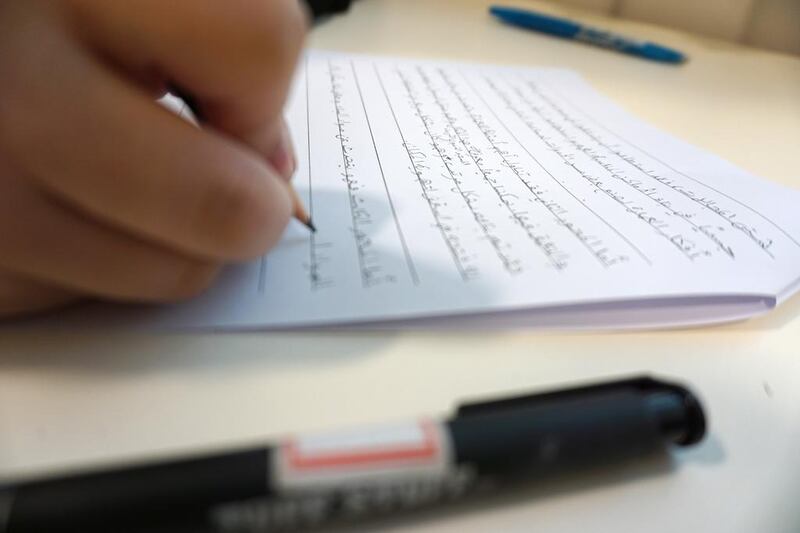Today is World Arabic Language Day. The United Nations initiated this annual event in 2010 to celebrate Arabic and promote cultural diversity. Sunday is a great day for non-Arabic speaking residents of the UAE to commit to becoming more familiar with this elegant tongue. There has never been a better time to make such a commitment. In an era when people are threatening to build huge walls, learning a second language is a great way to build bridges.
The 2016 film, Arrival, is a nice example, albeit a fictional one, of how learning another language can make us more open to seeing the world differently. The film follows the progress of a linguist attempting to learn the language of aliens recently arrived on Earth. It is a fantastic depiction of how language is a wonderful gift that shapes the way we look at the world and allows us to effectively convey our intentions and avoid potentially catastrophic misunderstandings.
In 1971, newspapers around the world reported a story that exemplifies how things can go horribly wrong when we don’t share even the basics of a common language.
The story concerned a Swiss couple visiting a Hong Kong restaurant accompanied by their pet poodle. The diners, speaking no Cantonese, are forced to order from the menu using the point-at-pictures technique. They then gesture, by making eating signs, that they want their dog fed too. The poodle is promptly taken away. After a while, the waiter returns with a serving dish under a large silver lid. The serving dish is ceremoniously uncovered, revealing a roasted poodle garnished with pepper sauce and bamboo shoots. The Swiss couple is traumatised.
Fortunately, most of our linguistic inadequacies don’t end in dead pets. However, even when we do start to learn another language there is still room for things to go very wrong.
For instance, the police once stopped one of my wife’s Canadian friends; the lady in question is married to an Emirati, wears shayla and abaya, and speaks a little Arabic.
The police officer gestured for her to lower the car window, and then, in the concise style so characteristic of law enforcement agents, barked a single word at her: “Sura?”
To a slightly anxious ear, with only a basic grasp of Arabic, sura could mean photo ID or a verse from the Quran. You can imagine the police officer’s bemusement when my wife’s friend closed her eyes and began to recite the opening verse from the Quran in her best singsong Canadian accent.
However, in spite of the struggles involved, and the inevitable embarrassing mistakes, Arabic is truly worth the effort. It is undoubtedly one of mankind’s greatest languages. Spoken by more than a quarter of a billion people, Arabic is one of the six official languages of the United Nations.
Arabic is also classed as one of mankind’s great civilisational tongues. Classical Arabic however, unlike Latin and Classical Greek, remains a living tongue. To further extol Arabic’s virtues, the language has some very rare and interesting psycholinguistic features. For example, it is one of only a handful of the world’s languages that freely permits both subject-verb-object and verb-subject-object sentences.
In Arabic you can say, Justin wrote this column (subject-verb-object), and without sounding like Master Yoda, you can also say: wrote Justin the column (verb-subject-object). “Big deal”, I can hear you think. But it is this type of linguistic rarity that keeps psycholinguists awake at night pondering the origins of language and the relationship between language and thought.
Such flexibility also makes Arabic a great language for poetry. This perhaps explains why televised poetry competitions such as Million’s Poet are so popular in the region. Can you imagine a poetry competition occupying a prime time TV slot in the English-speaking world?
Learning Arabic will help you build bridges, tear down walls and broaden the way you see the world. It might even kindle your poetic fire.
Dr Justin Thomas is an associate professor at Zayed University
On Twitter: @DrJustinThomas





